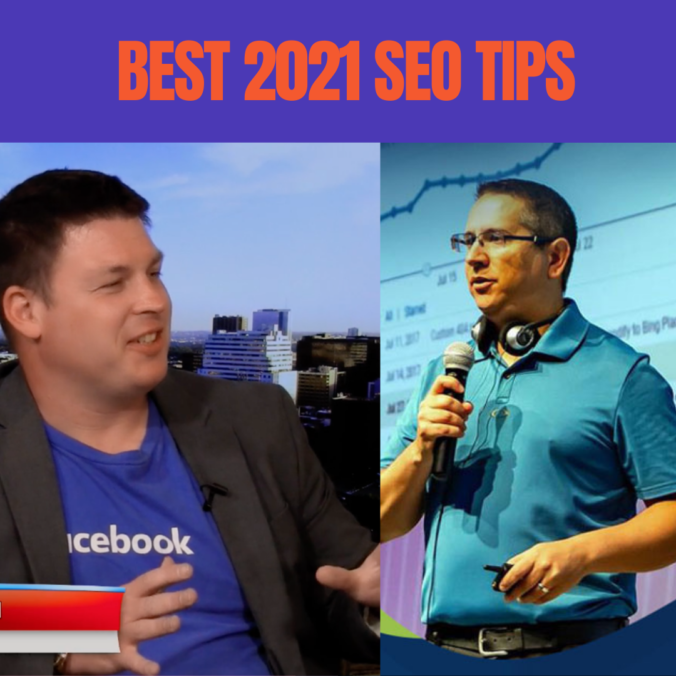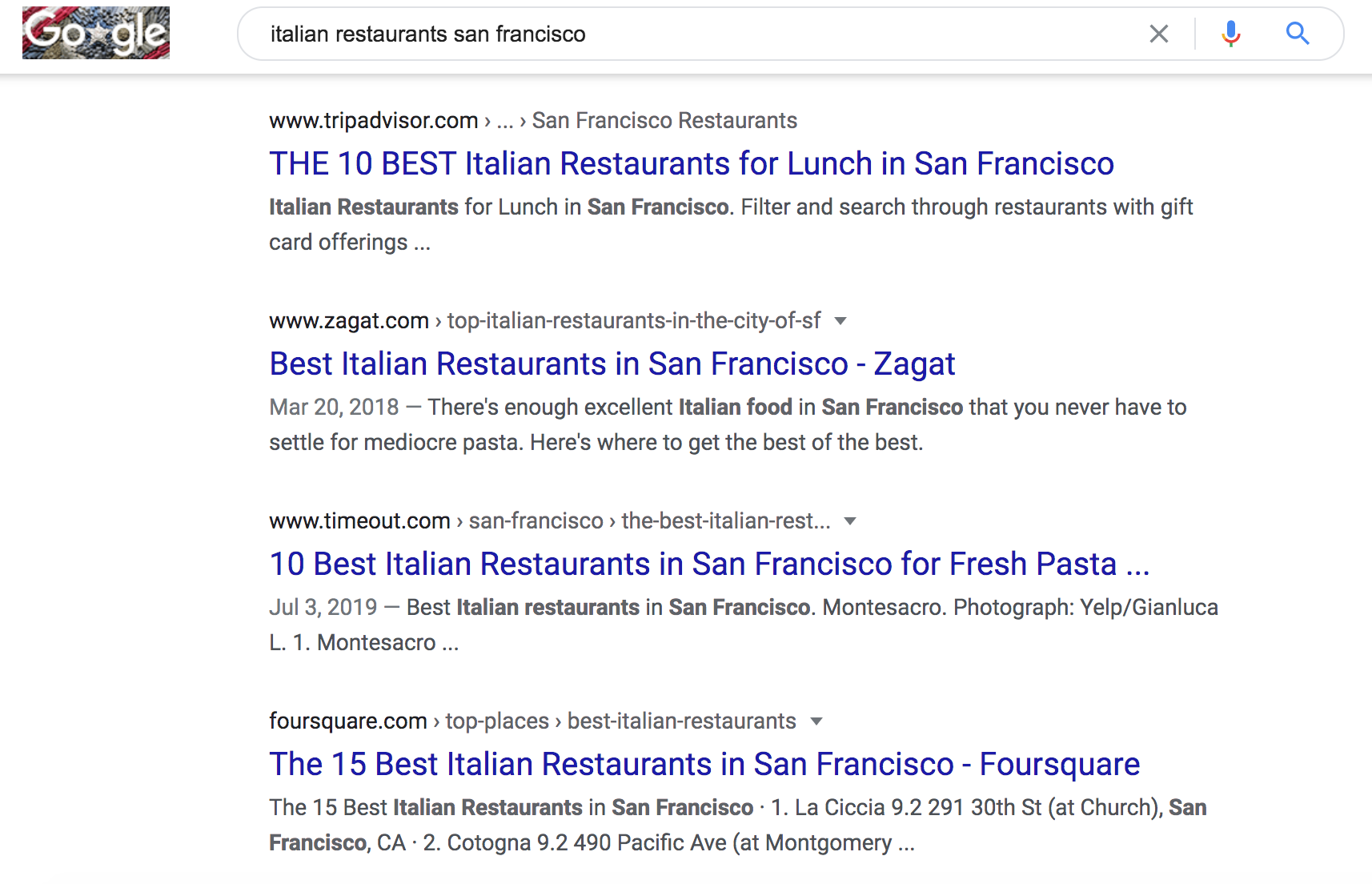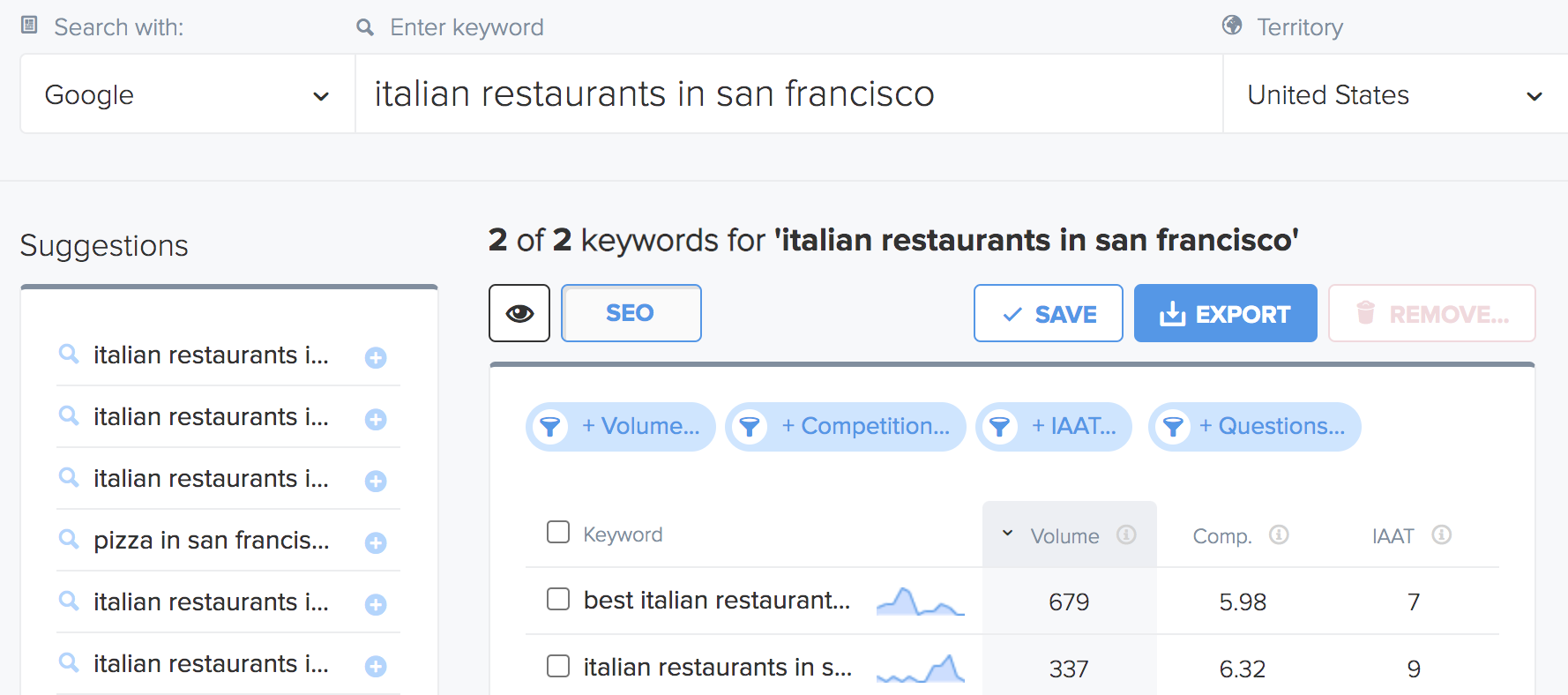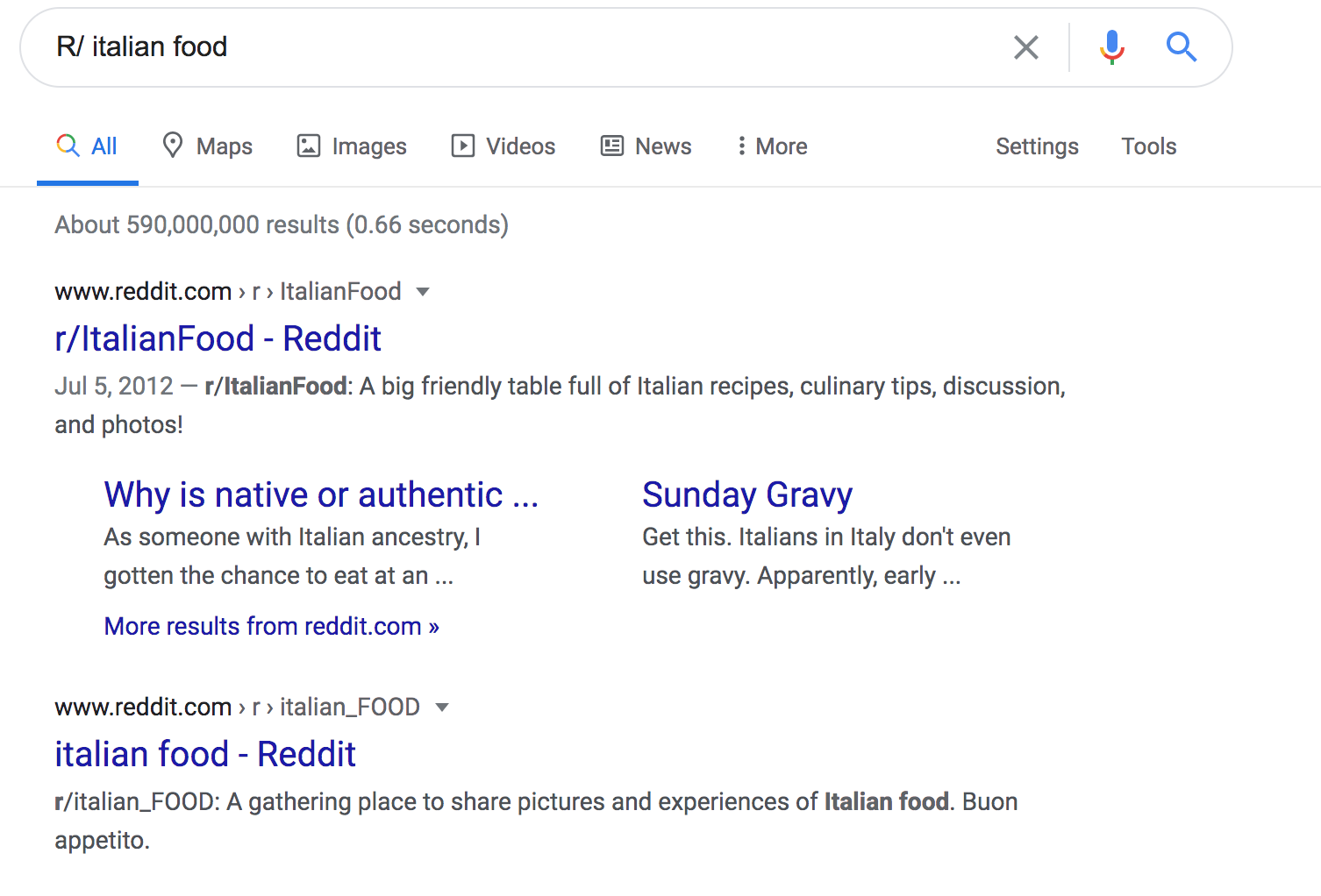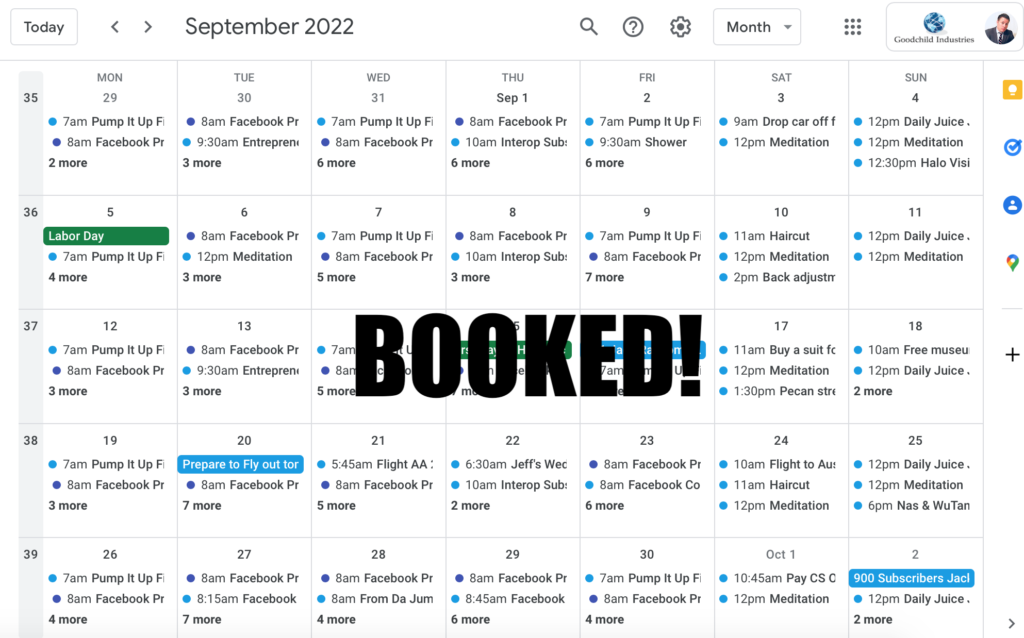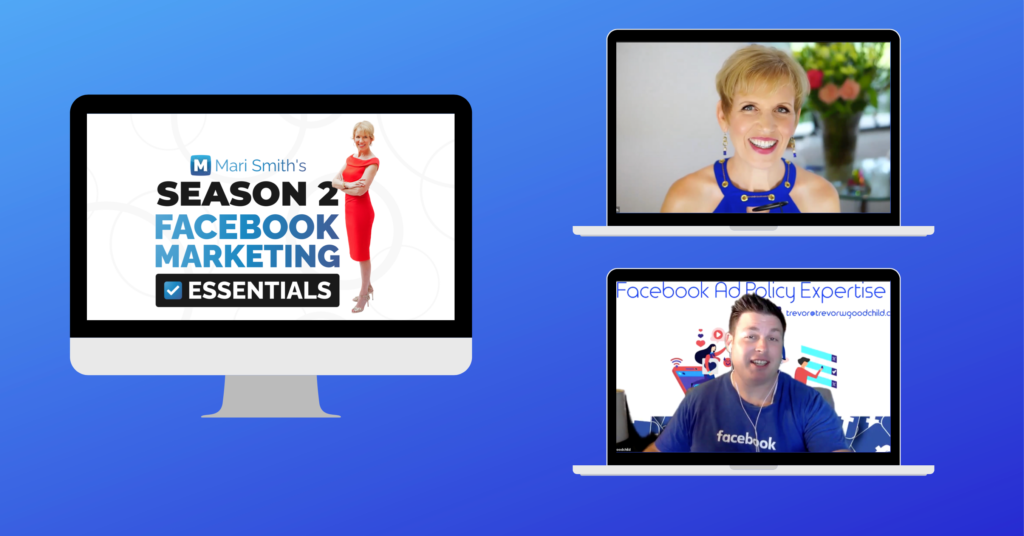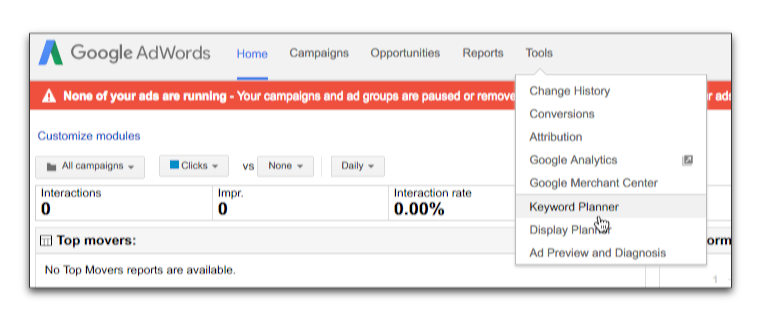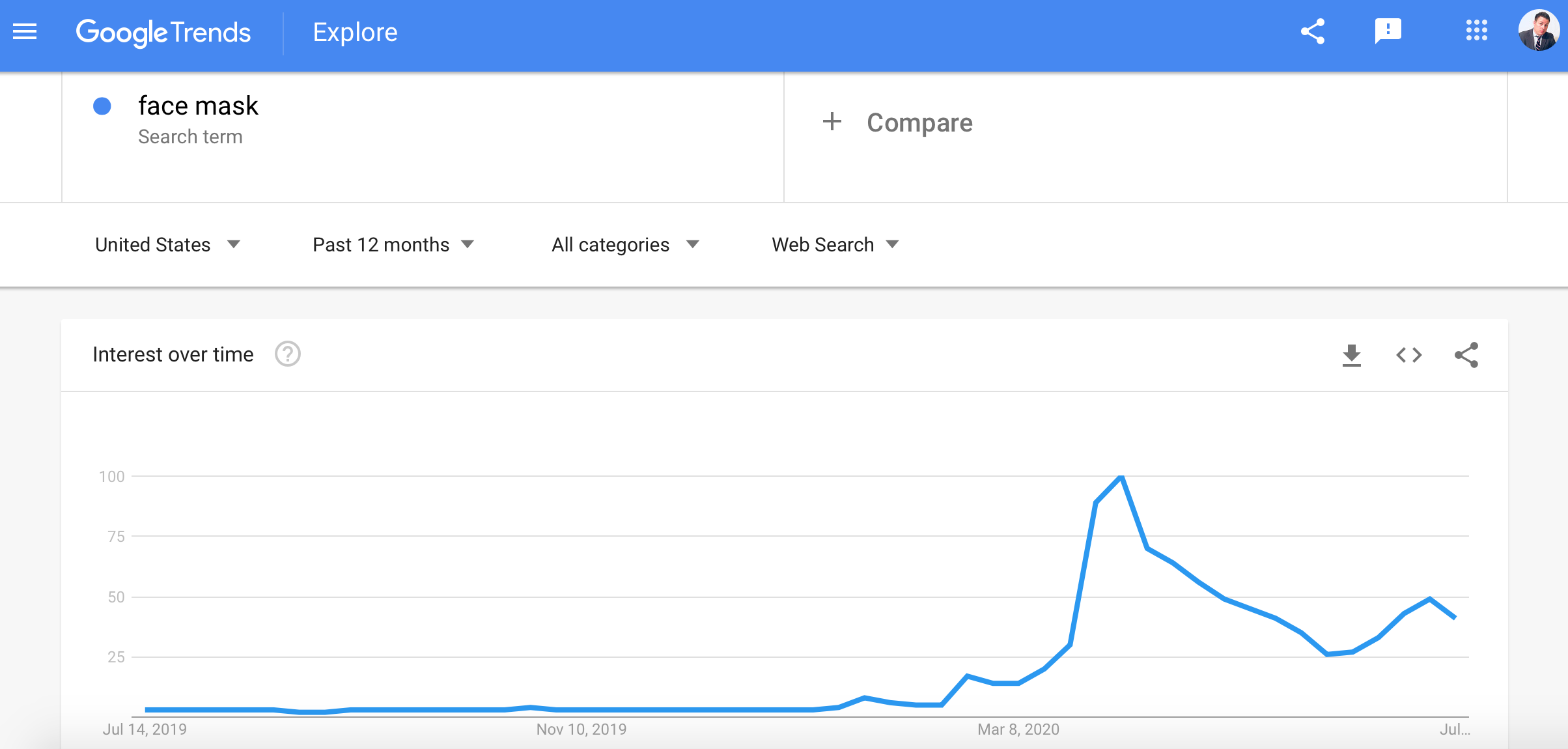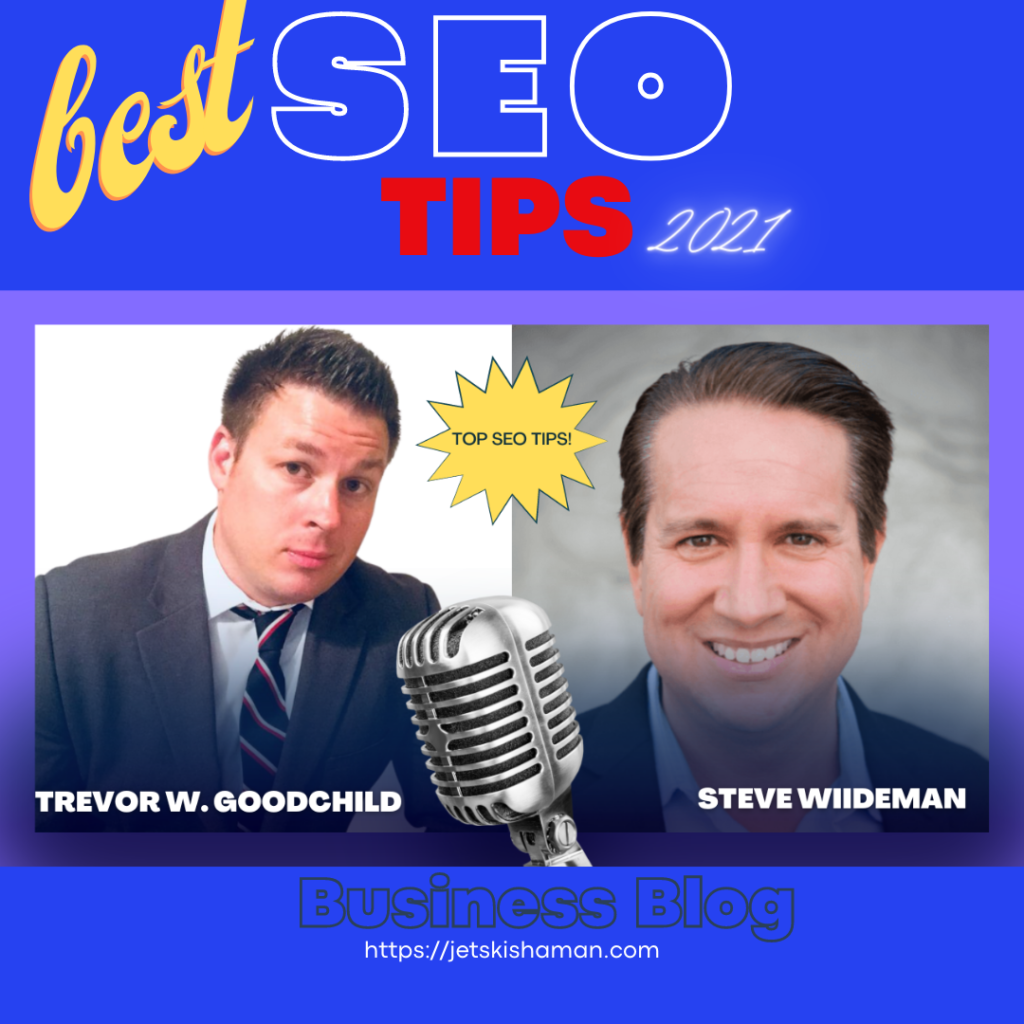
I interviewed Steve Wiideman for the Best SEO tips in 2021 and he delivered some incredible content I'm happy to share with you.
(Be sure to read my blog The Reason Why More People Aren’t Entrepreneurs here).
At A Glance
∎ Learn the magic of SEO after Google's Hummingbird Update
∎ 3 principle-based factors on using Google to increase your sales
∎ BONUS: Get access to a $599 SEO course for FREE
Best SEO Tips in 2021
Trevor: I'd like to hear your thoughts on SEO, with some specific questions I have there. I've SEO'd my LinkedIn profile. It has gotten me a lot of business doing that.
Because people search LinkedIn for stuff and people don't realize, uh I guess I should say business owners don't realize how valuable SEO is on all platforms. Whether it's LinkedIn, or their website, or their YouTube videos or whatnot.
If you could share, maybe top 3 tips for folks that are doing SEO themselves or maybe what they should look for if they want to hire someone that does SEO for them.
Optimize LinkedIn & Identify What Search Results You're Pulling
Steve: Sure you make a great point with LinkedIn. Optimizing your LinkedIn profile is fantastic. But when you optimize all of your social media profiles it can help you with your online reputation management as well.
So when someone does a name search your social profiles are there not just on page but off page getting some links to those profiles pages so google feels that’s the results are the most relevant searches for your name.
Do a google search with your name in quotes and see what appears for your name. Figure out which of those things you own and control and optimize the heck out of them.
Drive links to them from blogs, your friends blogs.
Isolate those things you don’t want to appear so you can get those removed or buried and then isolate things that are neutral that you don’t control. So you know in the mix of things here’s what I control.
Here’s what I can’t and that’s ok and here’s what I want to keep an eye on to go away.
Google SEO Tip #1: Solving for the intent of the user
Do I have the most relevant page to solve what people are looking for?
Steve: This for Organic SEO - a principle based approach:Not just the key words - key words died in the Hummingbird update from Google in 2013
It's about solving for the intent of the user now.
What is it they really want?
They searched for title tag principles because they are trying to get their click-thru-rates up in search results. But what do they want?
Higher CTR? Or Higher keyword rankings?
So when you solve for what they are actually looking for...If someone is searching for cheap flights...ask:
What is it that they really want to do?
They want to save money, they don’t want to pay baggage fees right? They want value.
When you answer what your users really want thru survey:
Through customer support, intake calls whatever you need to do so that your page really solves what your customer wants this takes it to the next level.
Rank Brain - the other big update that sits on top of Humming Bird is trying to understand the meaning of words.
You do need to emphasize search terms that have high search volume when you launch a new page because Google is going to crawl that page, identify those phrases and test you in the search results for them.
Long term it’s how users interact with your listing. So you can hack your way to the top with key words but if other pages are doing a better job of solving what users are looking for and provide more of a delightful experience, long term your rankings will go away.
So that’s #1 looking at your on page, being the most relevant and doing a search for the keyword you want to appear for.
• Study the top pages
• Study the on page
• Study what links are coming into those pages
• Study how many people have curated or quoted from the 1st paragraph on that page
• Use this data to inform on how to optimize your page
Google SEO Tip #2: Optimize Your Off Page Results for Google
Steve: Google in particular started with an algo Larry Page coined as Page Rank. It isn’t where you rank on the page but the algorithm that crawls thru the net looking for info to understand what pages have what meaning and are a good match for a phrase someone searches for in the search results.
They are crawling thru links to get to pages and those links count like votes. Like a sign above the door that says what’s behind the door, so before you walk thru it you read the sign and go oh, this room must be about kitchen.
So google reads the text in the link, then read the page and says oh this page being linked to must be about this topic.
Then they crawl analyze the page for titles, headings, the URL the page name.
They look at all these hidden factors and based on the on page and off page this page might be a good match for this search term.
I’m [Google is] going to test it and 1 out of 100,000 times people are searching for this term if it does good I’ll show it twice for every 100K then every 50K.
Then more often you can see this in Google Search Console
It all stems from how often they hit your page and how many other websites are linking and mentioning your website and your content.
This is just organic results, not Google maps, not video search, we’re talking about specifically Google web search (Google depending on your industry having about 80-90% market share is the search engine we want to pay the most attention to).
So those 2 are 2 of 3 principle-based factors.
1. Am i improving the relevancy and helpfulness of my page over time?
2. Am I improving the visibility and mentions of my page over time?
Google SEO Tip #3: Search Appearance & User Behavior Signals
Steve: And the 3rd thing is search appearance and user behavior signals - how users actually interact with your listing.
And in many cases you can almost eliminate everything on page and off page if you’re already ranking in top results If your page is the most helpful - it will stick there at the top.
It’s really around the user signals that tells Google and other search engines that this listing is the most helpful so I’m going to leave it there on the top until they start choosing another listing more often and staying on that listing.
So our goal is to provide a really click enticing, helpful, maybe really rich result by using some of the different technology available maybe using some reviews to the page so you get stars in the search results.
Maybe having some FAQs section at the bottom of the page that will show up in the search results if you use that FAQ market.
Maybe it’s putting some mark up around your video or images so they shows it as a thumbnail in the mobile search results.
It’s making your listing really stand out so it’s not just 1 of 10 listings that have just a title, description and a URL but instead you have some really rich content in the search results.
Trevor: So it’s using these tools to appear more valuable at a glance.
This speaks to value based marketing,versus hard pitches, deliver value first to engender reciprocity to be viewed as more helpful and enhance word of mouth digitally.
Steve: Now we’re talking about attribution and the whole buyer's journey and you’re right there are some biz owners that get myopic of driving people to just sales content:
"I want to make sure my sales pages are #1 don’t waste your time with all this fluff marketing content just get my personal injury or car accident lawyer page #1 that’s all I want."
But the reality is you can’t make that happen without some of the marketing content because that marketing content attracts links and it helps your wholistic SEO and builds authority if your short summary of the page, that long form:
• How to
• Where to
• Why
• What is
• Strategy
• Tips
• Advice
• Checklist type content...
When it’s out there and it gets linked to that can support that sales page that you want to perform that you want to rank.
So it’s hard sometimes convincing the leadership team that we need to create a really strong content marketing strategy around what our customers are looking for before they are ready to hire us.
Maybe even doing some industry content where we get other sites in the industry to reference some data some case studies some research we did that isn’t already available online.
So I think you’re right I think it’s understanding that buyer journey and addressing each phase of it when the user isn’t at the point of making a purchase or ready to make a decision yet.
Trevor: This would align with influencer marketing and getting shoutouts from people that are already established and things like that.
But I mean this is why you have a blog - you develop an audience you provide all this valuable content.
And it serves a secondary function:
So when you’re giving away information and there’s not a sales pitch there maybe there’s a link where hey if you want to find out more feel free to enter the funnel, essentially, without saying those words.
What also helps with that [content marketing] is: it’s a pre-qualifier.
You don’t have to get low quality leads because people are coming here they are attracted here by the content.
Instead of someone that just saw “hey this is for free” let me click on this. It’s a free deal! And then you get everyone that wants the freebies instead of the people that are more invested for a longer CTV for the lifetime journey of the customer.
Steve: It can be a huge win.
With Meineke car care centers, we did this thing where we didn’t necessarily want our best evergreen content on the blog but that’s where they put it.
The blog for me is about industry news, having a voice in conversations that are happening right now what’s new with the company.
It’s really time sensitive and will get buried in RSS feeds over time.
I like to nest up the content that’s more evergreen that will be just as helpful 3-5 years from now under its appropriate silo.
So I can get those really competitive pages to rank well so I’ll nest them in a URL that’s a sub page of that main page and I might use the blog to link to it so those sites that do take RSS feeds and publish that.
If they consume HTML you might get a link back from it. So it’s still worthwhile to mention in a blog.
So with Meineke they did use the blog. We did one every Tuesday we came up with a list using Conductor Searchlight keyword.
We came up with a list of all the different keywords we thought people were looking for.
Every Tuesday we launched a How-to.
• How-to jumpstart your car battery
• How-to check your engine oil
• What’s the difference between standard and synthetic oil
We did this every single Tuesday.
Every post was optimized to rank with unique pictures we took on sight, sometimes videos, a step-by-step it was a really strong campaign and a lot of that content is still up if you want to look at it.
After 5 months we attracted over 500,000 visits.
I think the most visits we had was was during Coachella which was when people were looking for how to jump start your car battery which I thought was really funny.
So anyway in doing that, what was neat about that campaign wasn’t that we drove that much traffic and earned 200 links to the site in the process.
But because everyone needs an oil change and they did at the time every 90 days they were able to use re-marketing.
So for everyone who visited the website we were able to remarket to them with ads you know $14.99 oil change coupon or something.
So not only did we did we attract links, drive traffic to the site, build brand awareness get a lot of those featured answers that now appear in voice searches since Google Assistant will use featured answers in 70% of its results.
We were also able to drive some of that traffic back to the website using retargeting from Facebook, from Google, from Bing and from there continue to build our list.
We were able to almost quadruple the volume of visitors that are coming to the website just by creating that value that you were just talking about.
Trevor: It sounds like you have enough in your brain to build a course. Do you have a course in SEO?
Steve: Yes
Trevor: Where can people go to find out more information?
Steve: I’d like to give everyone free access to it if you want?
Trevor: Sure!
Steve: It’s at academyofsearch.com
What I decided to do 3 years ago which is actually one of my own personal dreams is to teach. I started teaching at Cal State Fullerton, UC San Diego and Fullerton Community College.
At Cal State Fullerton I was teaching a class on strategic SEO.
I took a lot of that course content that inspired an SEO course we have at Academy of Search - like a 6 week program - it’s a $599 course but your listeners can access it for free.
Just use SEOSTEVE and they can get free access.
Trevor: Is there anywhere else people can go to find out more about you and your services that you’d like to give a shout out to?
Steve: Sure I’m actually all over social. My handle is SEO Steve. But if I’m not responding quick enough our team - we have a team of 9 other search geeks like me, no sales people we just love to help. Especially small businesses, we don’t work with a lot of small businesses.
So any help you need as a small business is all free and something we do to try to help the business community.
Just use the handle the Wiideman pretty much anywhere.
Instagram, Facebook all over the web. If there’s anything we can do to help to solve for a problem, a page isn’t ranking, a competitor is doing something spammy you know whatever it and you’d like us to take a look please do that we like to help wherever we can and hopefully build some great relationships.
Who knows maybe one day you’ll be the next digital marketing manager at the next Sketchers and you’ll remember us.
Trevor: That’s such an awesome thing you’re doing for small businesses there.
Steve: Thank you.
Have you used SEO before? What were the results? Comment below!
Once a month on Tuesday on Clubhouse 10am-12pm CST I host a Startup Club Room called Entrepreneurs That Make A Difference - follow me @fbpolicypro to get find out more.

Facebook disapprove your ad and won't tell you why? Need done-for-you FB ads?
Schedule a time to talk to a Facebook ad policy expert who worked at Facebook here.
Enjoyed this blog? Signup here to get updates on new startup blogs.
. . .


